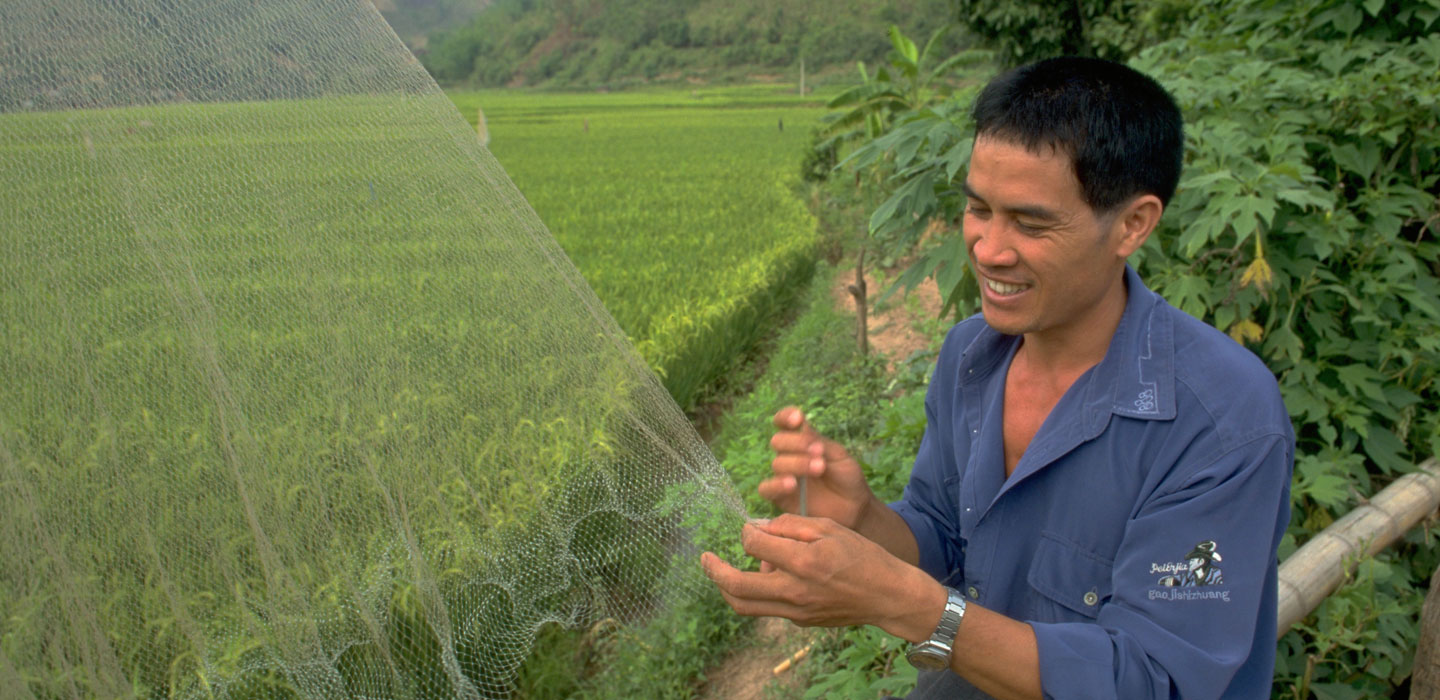Fighting against COVID-19: the importance of building long-term resilience in rural communities
IFAD Asset Request Portlet
Asset Publisher
Fighting against COVID-19: the importance of building long-term resilience in rural communities
Estimated reading time: 3 minutes
©IFAD/Louis Dematteis
Two months have passed since the beginning of the new coronavirus (COVID-19) outbreak in Hubei, China. It seems an appropriate time to reflect on the impact of COVID-19 on rural communities in China, and on the importance of investing in rural people in order to build long-term resilience to shocks.
The sudden outbreak of the new coronavirus has raised legitimate questions about the impact of such an outbreak on the most vulnerable parts of the population, namely the rural poor. Although, in fact, the new coronavirus outbreak – as any other epidemic – may equally infect everyone, the most vulnerable have less capacity to cope with the impact of such infection. Poor rural households are less able to reach or afford medical care, and the availability and capacity of health systems in poor remote areas is limited. Moreover, poor rural households have less capacity to cope economically with the consequences of an outbreak. The lockdown of almost all cities in Hubei and the movement restrictions that were implemented have prevented many people from working, particularly migrant workers whose income many rural households depend upon. It has also deprived many households of their main source of income. Similarly, the closure of roads and reduction in transportation has delayed or reduced the sale of agricultural products, and has affected many small businesses in rural areas.
Several measures have been implemented over the past few weeks to mitigate the impact of COVID-19 in rural areas. The Hubei government, for instance, has mobilized more than 70 new medical facilities to rural areas in the region amid the novel coronavirus epidemic. The Agricultural Development Bank of China has approved emergency loans worth more than CNY 10 billion (about US$1.5 billion) to counter the coronavirus outbreak. The China Banking and Insurance Regulatory Commission has extended the terms for the repayment of microloans by six months. The private sector has also played an active role in reducing the impact of the outbreak on the rural population: e-commerce giant Alibaba has set up a dedicated online agricultural retail platform to support agricultural producers to sell their products. As a result, 12,000 tons of overstocked fruits and vegetables were delivered within five days. Similarly, a number of logistical companies have launched "green" and "quick" channels to transport farmers’ products in the region. Lastly, individual creativity has also resulted in new, "outside-the-box" solutions: for instance, drones are increasingly being used to prevent social gatherings. Overall, special attention is being given to poor villages.
There is no doubt that the potential high costs and impact of the outbreak on the rural population are being minimized by the many measures that have been put in place. However, these measures counter the immediate, short-term impacts of the crisis, but do not address the root causes of vulnerability in rural areas.
To avoid or prevent the same vulnerable group of people from being affected by the next crisis – be it a new outbreak, an unexpected drop in commodity prices, or a poor harvest due to unfavourable weather events or pest infestation – the resilience and the capacity of rural people and rural communities to cope with shocks needs to be strengthened. It is critical to invest in rural areas and in rural people: building roads that reduce travel time and costs; developing irrigation systems that reduce the reliance on increasingly variable rainfall; improving access to clean water and sanitation to reduce waterborne diseases; strengthening the capacity of people to save, diversify their job opportunities, access information, etc. These are critical elements for strengthening rural communities’ capacity to cope with shocks and other unforeseen events.
Building on over 40 years of strategic partnership with China to promote rural development, IFAD will continue to support China’s strategic focus on rural areas and rural people as an integral part of its rural revitalization strategy. However, fostering rural communities that are increasingly resilient to shocks should be one of the long-term objectives.
Publication date: 04 March 2020